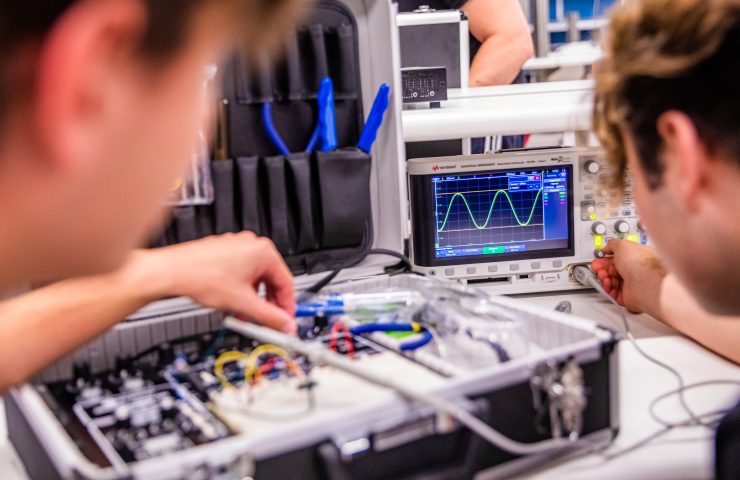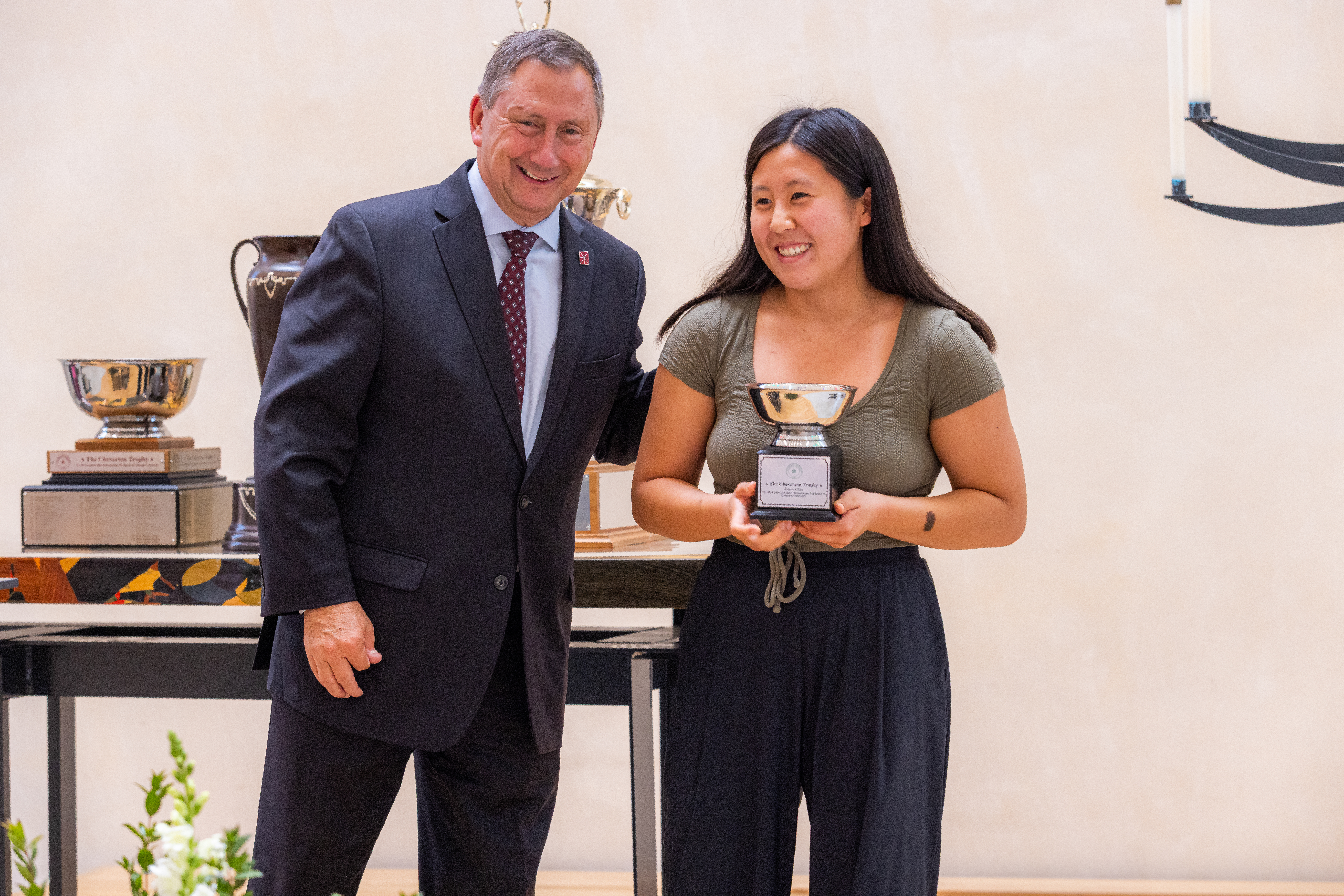Olivia Chilvers, Tally Holcombe and Noah Fuery are among the students pioneering the MS in electrical engineering and computer science program (MSEECS) at Chapman University’s Fowler School of Engineering.
“One thing that stood out to me about this program is the foundation in ethics and leadership,” says Chilvers, a computer science major who expects to graduate with a bachelor’s degree in spring 2024 and will be pursuing the MSEECS’ integrated track. “I like that it intertwines a humanities aspect to STEM classes.”
The MSEECS is a traditional full-time program, with an integrated option for current Chapman undergraduate students. It has three main parts: computing systems, electrical systems and intelligent systems and data science. The program incorporates ethical engineering, entrepreneurial thinking, leadership skills and communication.
“The new MSEECS is in response to a growing demand in the community for professionals with specialized knowledge in fast-evolving fields of engineering centered around computing and intelligent systems,” says Professor Thomas Piechota, who teaches in Fowler School of Engineering and Schmid College of Science and Technology.
Fuery, who expects to graduate in spring 2024 with a computer science degree, will be taking the integrated route for his MSEECS. He thinks incorporating ethics is “very smart and innovative.”
“The controversies and debates surrounding AI are some of the most important topics students can discuss and learn about at university,” he says. “This master’s program will allow the students to engage with these controversial discussions about artificial intelligence.”
Holcombe, a biological sciences major and spring 2023 graduate who will be in the program’s first cohort in fall 2023, discovered computer science entering her junior year at Chapman. Her instructors’ hands-on approach built her interest and confidence in the subject.
“I know how engaging the classes I’ve already had were, and I wanted to stay in an institution where I know that’s what the professors are like,” she says.
Chilvers, who is helping to make software tools as a Boeing intern, said she hadn’t intended to go to graduate school, but the new program intrigued her. She liked the opportunity to go deeper into topics and stay at Chapman.
She wants to continue at Boeing and thinks the program will make her an even better candidate to employers.
“I think as a female it is a great accomplishment to be in a master’s program, especially in STEM,” she says.
Like Chilvers, Fuery thinks the program will be an asset to his career.
“I am interested in other positions concerning topics of cyber security and cloud computing, but I am primarily focused on trying to become a software engineer,” Fuery says. “I hope to use this master’s degree to propel me in searching for a job, but I am keeping the possibility of pursuing a Ph.D after obtaining a master’s degree.”
Chilvers enjoys developing software and using automation to help avoid human error in tedious tasks.
Regarding AI, it’s important to know “how it interacts with humans or in parallel,” she says.
Fuery says there are many opportunities in the new program for adding to his knowledge in computer science and electrical engineering.
“The wonderful faculty and staff of the Fowler School of Engineering, and all of Chapman in general, have led me to pursue a master’s degree at Chapman,” he says.
Students in the program, and faculty, can use what donor Nvidia Corp. calls “the first community-operated supercomputer” in the nation – which also happens to live at Chapman.
Prospective students can go here for a calendar of information sessions.




